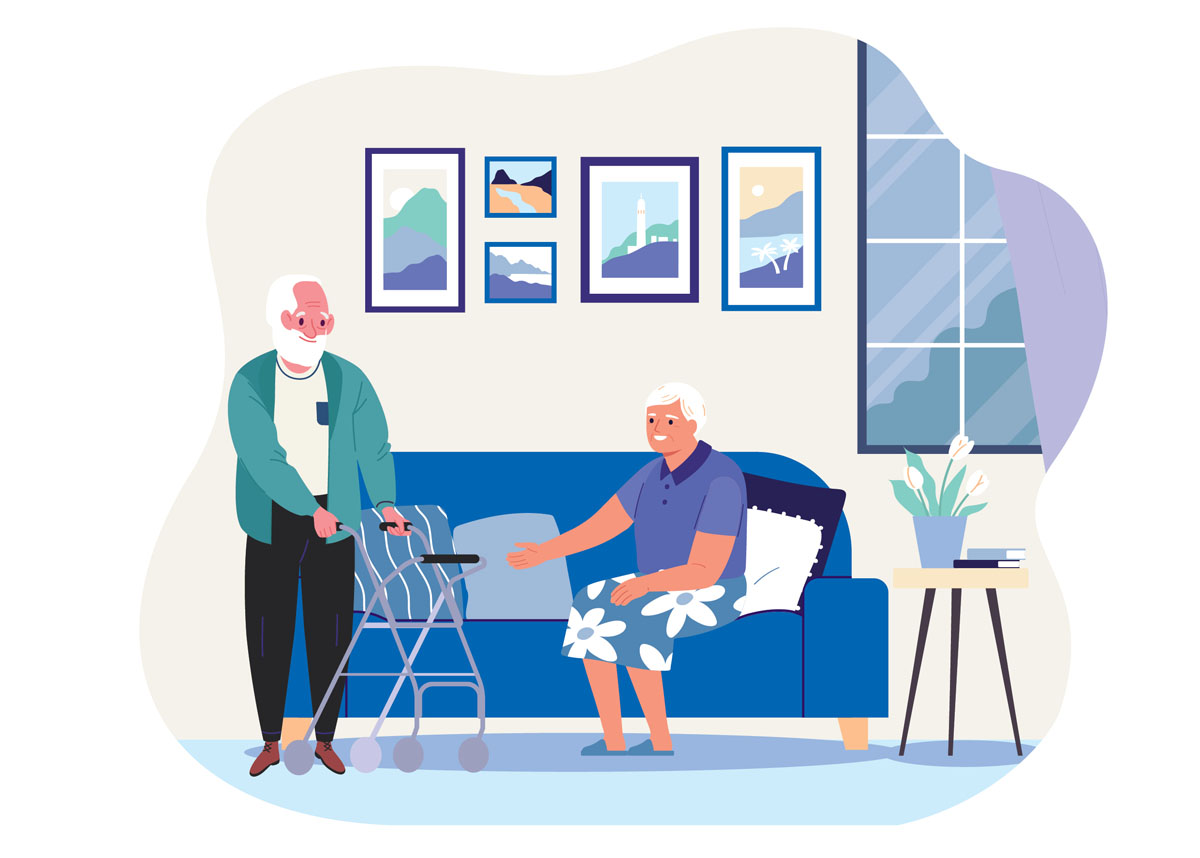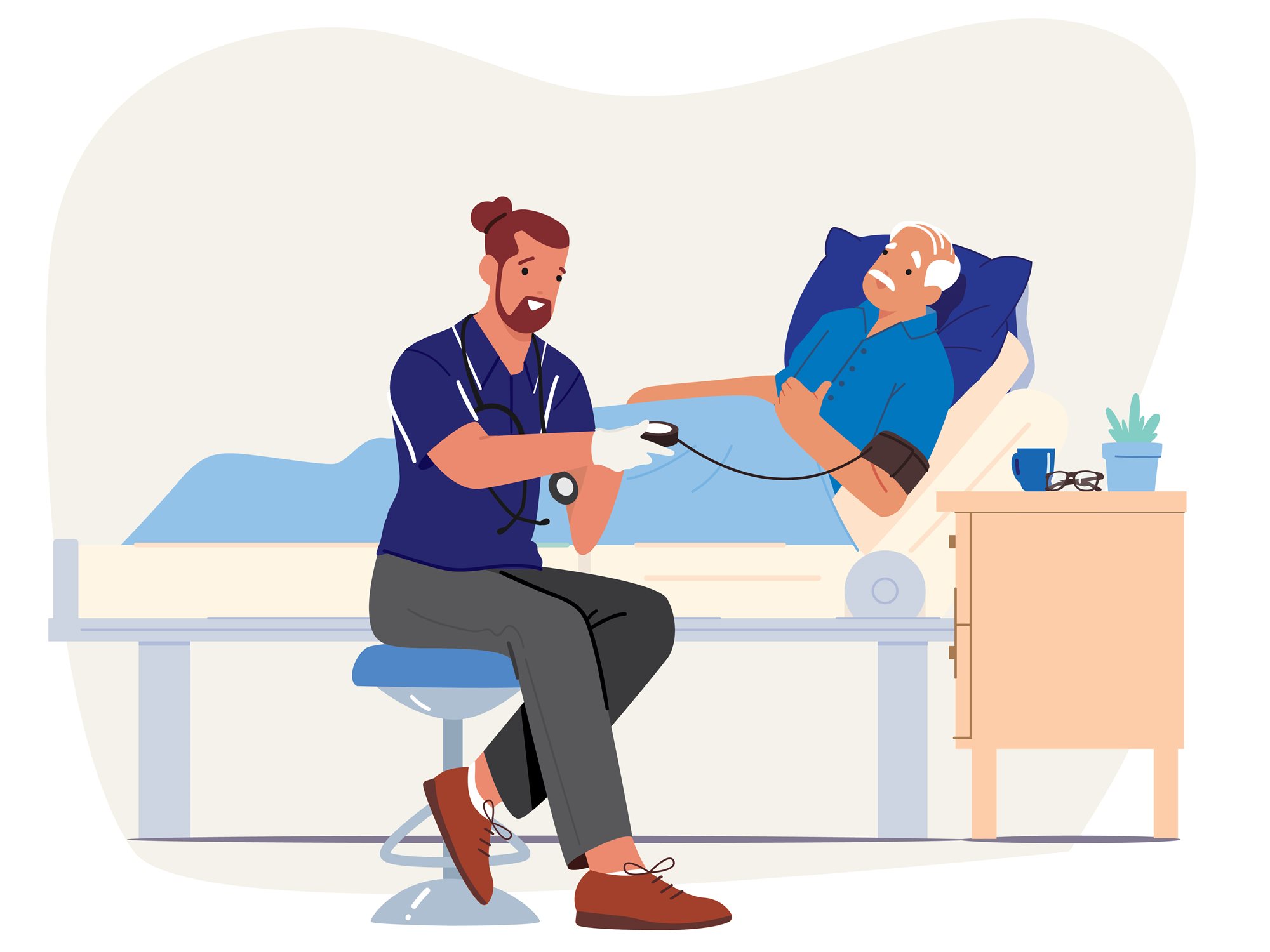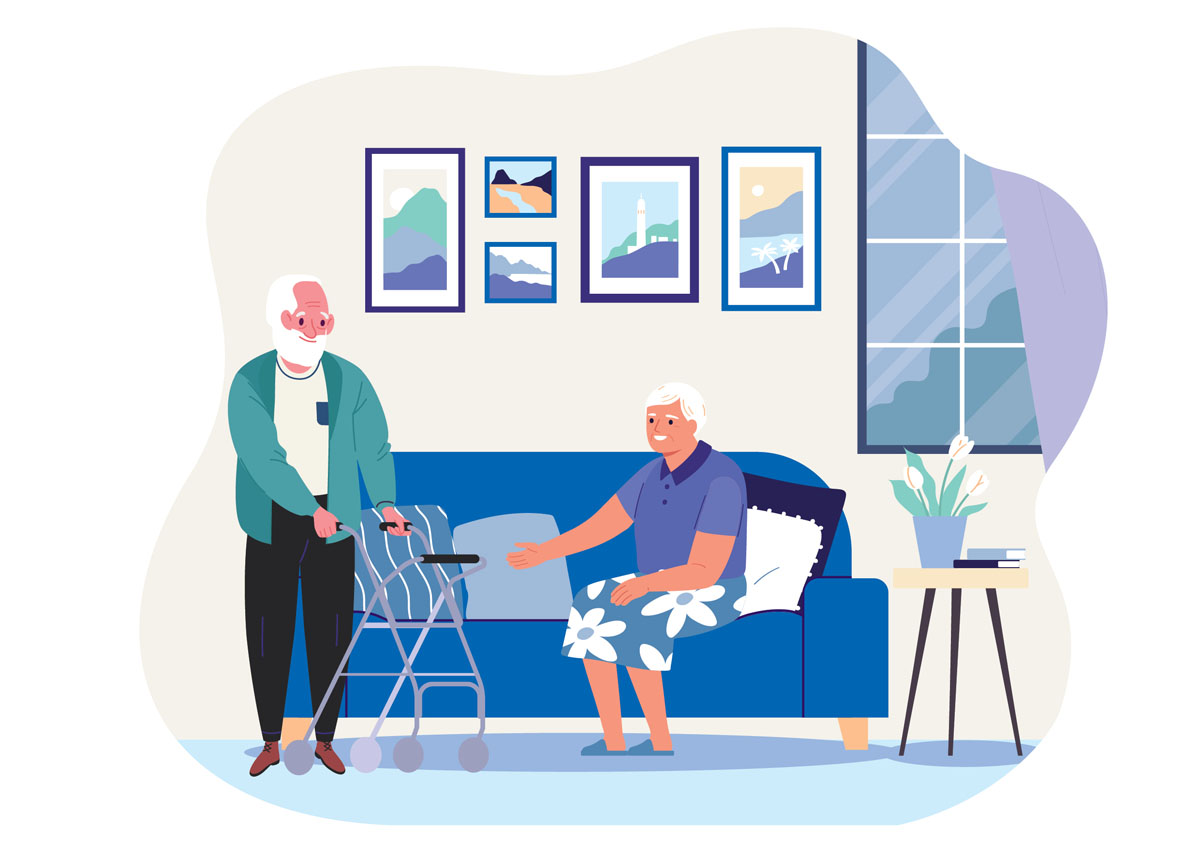When it comes to post-surgery recovery for the elderly, studies show that getting a little bit of extra support (particularly in the form of physical therapy) can improve quality of life. Through post-surgery respite & transition care, you can give your loved one the best chance to recover in a safe environment.
Providing care for an elderly family member following hospital discharge can be an immense task, especially for family members who may be juggling other responsibilities such as work and childcare.
Whether you’ve organised respite at your home or in a residential aged care setting, the importance of post-hospital care remains the same. Post-hospital care is about more than just physical recovery. It's about nurturing, about helping your loved one regain their independence and get back to their daily routine - with a team of experienced caregivers by their side every step of the way.
5 benefits of post-hospital support through a transition care program
1. Recovery from drowsiness and confusion
Once the anesthesia from a surgery begins to wear off, the alterations in brain function can cause residual effects such as drowsiness, cognitive impairment, and sometimes confusion. It’s really important that an older person takes the time to recover from this as it can days, weeks or even months to recover from. Spending those first few weeks in a secure environment can help minimise the risk of confusion or drowsiness causing an injury.
2. Getting on top of any illness or infection
While hospitals do all they can to prevent it, it’s not uncommon for a trip to the hospital to result in some sort of sickness whether it be the common cold, flu or something more serious. Respite gives recovering patients the chance to knock over any linger illnesses that might be bothering them and helps them do so in a safe environment that’s monitored 24 hours and 7 days a week.
3. Support for Daily Living Activities
When you’ve had a break of an arm, leg or hip and you’re on the mend, you’re going to need help with daily activities like bathing, dressing, eating, and mobility. Whether it's in-home support or an aged care home, having professionals provide this assistance ensures these daily tasks are completed safely, reducing the risk of re-injury or complications.
Ensuring continuity of care is vital in the recovery process after surgery for an elderly person. In-home support or aged care homes can provide this continuity, offering a stable environment where health conditions and recovery progress are monitored consistently.
5. Structured Rehabilitation Programs
Following surgery or serious illness, elderly patients often require structured rehabilitation programs, including physiotherapy, occupational therapy, and speech therapy. In-home caregivers and aged care home staff can facilitate these programs, working with therapists to ensure patients perform exercises correctly and regularly, which can lead to a decrease in the potential amount of falls an elderly person might due to muscle weakness or impacted gait.
Note: Personalised rehabilitation programs in respite may incur further cost
6. Nutritional Support
Good nutrition is key to recovery, but elderly patients may struggle to prepare meals or lose their appetite post-hospitalisation. In-home caregivers or aged care home staff can ensure they receive nutritious meals tailored to their dietary needs, promoting healing and strength regain.
How Long Would You Need Post-Hospital Support For?
The need for post-hospital support after surgery with respite care is entirely specific to an individual’s care needs. However, we’ve provided a short table with common injuries and their regular recovery times.
|
| Average Assisted Recovery Time |
| 12 weeks for healing, full recovery up to a year | |
| 6 to 8 weeks for healing, full recovery may take several months | |
|
A few weeks to a few months | |
| A few weeks to a few months | |
*This table is only a guide and should not be used as direct medical advice. Each recovery will depend on an individual’s circumstances.
Note: While you can get services in your home, during recovery for a big surgery it may be best to consider residential respite in an aged care home where care is closer at hand and available 24/7
Where can I get support post-surgery with transition care?
The two main places you can get support post-surgery are:
In an aged care home
What that looks like:
- 24/7 monitored nursing and support
- Group physiotherapy available (along with options for one on one recovery which may incur additional cost)
- Monitored nutrition and meals
- Best for people who need help with daily tasks eg. showering etc. (especially for the first few weeks)
In your own home
What that looks like:
- Home modifications
- Regular visits from allied health
- Visits from nursing staff for wound management, medication etc.
- Best for people who can still do most things themselves post-surgery, but may need some additional help
Note: There's no one size fits all approach to post-surgery recovery and where you choose to recover can depend entirely on your surgery, circumstances and recovery. You may even find that you spend a few weeks in aged care, then transition to home care support after!
What if we need to use aged care permanently?
If your journey is leading you toward a more permanent aged care solution, remember - this isn't the 'beginning of the end'.
Over half of people who enter respite care in an aged care home transition to permanent care.

Understanding the Transition
The transition from respite care to aged care is a crucial step that often arises when an elderly person's care needs increase beyond what can be provided during a respite care stay, whether it's due to recovery after hospitalization, a progressive health condition, or the intensifying demands of caregiving.
While respite care offers temporary relief for caregivers and short-term support for the elderly, moving into an aged care home is often a more long-term solution. This move ensures the provision of round-the-clock professional care, medical support, and a supportive community for the elderly.
Oftentimes families will use 4 weeks of respite in an aged care home to get all of their affairs in order for a permanent move to aged care.
Benefits of using respite for a transition into aged care
Transitioning to aged care from respite has numerous benefits that cater to the evolving needs of an elderly individual:
Try before you buy: Whether you decide that full time care is the best option or not, it never hurts to try out an aged care home to see whether it’s best for your loved one. It may even be decided that the place you have respite care isn’t right for you. A transition into aged care through respite gives you these options.
Time to get organised: Organising 4 weeks of respite care prior to a transition into aged care can give you valuable time to organise finances, documentation and more to smooth out the move

- 24/7 Professional Care: In aged care homes, trained healthcare professionals are available round the clock to monitor and manage the individual's health. This is especially important for elderly individuals with complex health conditions or those recovering from a significant illness or surgery.
Physical and Occupational Therapy: Aged care homes often provide on-site physical and occupational therapy services, which are crucial for maintaining and improving physical strength, mobility, and functionality.
Social Interaction: Living in an aged care home provides opportunities for social interaction, a critical factor in maintaining mental health and overall well-being.
Structured Routine: A consistent daily routine in aged care can enhance a sense of security and predictability, which can significantly help an individual cope with changes in their health and environment.
Parting thoughts
After a fall, injury or surgery emotions are always running extremely high but it’s crucial that you consider a plan for what happens after surgery if an injury comes to that. While hospital staff and social workers will help you on your way post-surgery, being prepared for what could happen including a full-time transition into aged care will leave you feeling more confident and in control of your own or your loved one’s health and future.









